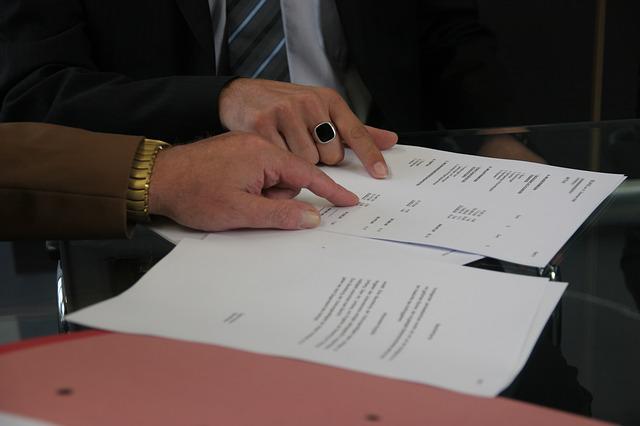
An environmental specialist is someone who monitors and reports on the health of air, water and noise pollution. They are often asked to help with emerging diseases or natural disasters. You will learn more about the job's responsibilities and specific duties. To learn more about what a typical day in the life of an environmental health practitioner entails, read on!
Environmental health professionals monitor noise, water and air pollution levels
Environmental health practitioners are trained to protect public health by monitoring pollution levels in the air, water, and noise. They analyze data in order to find out what causes pollution and how it can be controlled. They might work for industry, consulting firms or government agencies. Consultants may have their focus on a specific area or assess the safety and health of a particular site. Environmental health practitioners who work for industry often travel to different industrial sites and conduct assessments. Sometimes, environmental health professionals may be involved in disaster relief efforts. They often race to disaster sites to assess risks and accelerate cleanup efforts.
Most environmental health practitioners have a four year college degree in a scientific field. Certain states require that these professionals have a certain amount of experience and pass a licensing examination to become certified. Many environmental health professionals also have a master's in environmental health science. The National Environmental Health Science and Protection Accreditation Council also accredited many environmental health degree programs. This allows for skilled workers.

They offer advice on legal obligations for businesses
An environmental health practitioner advises businesses about their legal obligations concerning health and the natural environment. They work together with other professionals in order to ensure that standards and pollution levels remain low. They spend a lot time on the ground and are often under pressure. These specialists may work for several clients, including manufacturers, service companies, restaurants and shops.
A course must be completed in order to become an environment health practitioner. You must pass an exam and submit a comprehensive portfolio. Portfolios can be included in your degree program, or they can be completed after graduation. During your studies, make sure you take lots of math, physical sciences, and life sciences courses. Additionally, you should get as much experience in the real world as possible by volunteering with public health organizations and designing science fair projects that relate to pollution.
They advise on health and safety standards in the workplace
To identify and control potential hazards to human health and safety, environmental health practitioners are trained. They might work in government agencies, commercial or industrial companies. They may also be self-employed. Some of their responsibilities include advising employers on workplace safety standards and implementing policies to protect workers' health.
An environmental health professional's job is to make sure that safety and health standards are followed, as well protecting the environment. Environmental health practitioners provide advice, education, and monitoring to make sure that standards are met. Depending on their level of specialization, these professionals may also be called environmental health officers. Their primary responsibility involves promoting health-friendly environments, and reducing potential health hazards. They are responsible for food and water monitoring, investigation and prevention.

They provide advice on climate change
Environmental health practitioners advise on climate change, the environment, and health. This work is often done together with the public or private sectors. Their responsibilities include the prevention and management of communicable diseases, water safety, food safety, and surveillance of premises. Additionally, environmental health professionals are responsible for vector control as well as controlling pollution.
Sometimes, environmental health professionals are employed by government agencies and engineering companies. These jobs often require them travel. Their job involves many skills. Their mission is to safeguard the public's safety and reduce pollution.
FAQ
What happens when the consultant is done?
After the consultant completes their work, he/she will submit a final summary of the results. This report details the project timeline, deliverables, as well any other pertinent information.
You will then review the report to determine if the consultant fulfilled your expectations. You can request modifications or terminate your contract if the report is not satisfactory.
What does it mean to be a consultant?
A consultant is someone who provides services for other people. Consultant is not just a job title. It's a position where you help people achieve their goals. Helping others to understand their options, and then helping them make the best decisions.
Consultants are experts in finding solutions to the problems and challenges that arise while working on projects. Consultants can also offer advice and guidance regarding how to implement these solutions.
Consulting should be able address questions related to law, finance and technology.
What was the origin of modern consultancy?
The first consultants were accountants that helped companies manage finances. Because they were skilled in managing financial information, they became "accounting consulting". However, this role soon expanded into other areas, such as human resources management.
The French word for "to advice" was the inspiration behind the term "consultant." This was used by businessmen as a way to describe someone who could provide guidance on running an organization. The word consultant is still used by most business owners to refer to any kind professional advisor.
Is it possible to be a consultant?
Consultants are people who help you reach your goals by giving advice about how to make it better, faster, or cheaper.
You may need a consultant to help you with problems, make decisions or negotiate with others.
Many consultants are hired for specific projects and tasks.
Consultants are usually paid hourly, daily or per project.
Statistics
- According to statistics from the ONS, the UK has around 300,000 consultants, of which around 63,000 professionals work as management consultants. (consultancy.uk)
- 67% of consultants start their consulting businesses after quitting their jobs, while 33% start while they're still at their jobs. (consultingsuccess.com)
- My 10 years of experience and 6-step program have helped over 20 clients boost their sales by an average of 33% in 6 months. (consultingsuccess.com)
- According to IBISWorld, revenues in the consulting industry will exceed $261 billion in 2020. (nerdwallet.com)
- "From there, I told them my rates were going up 25%, this is the new hourly rate, and every single one of them said 'done, fine.' (nerdwallet.com)
External Links
How To
How can I start an advisory business with no money?
A simple and effective way to get started with your own consultancy business - without any capital investment!
In this tutorial, you'll learn how to make money online while working from home, improve your skills, earn some extra cash, and become successful.
Here are some secrets to help you get traffic on demand.
This is known by the name "Targeted Traffic". This method was built specifically to allow you to do things like this...
-
Choose the niche that you are interested in.
-
You can find out what keywords people use to search Google for solutions.
-
These keywords should be used to create content.
-
Post your articles on article directories.
-
To promote your articles, use social media.
-
Develop relationships with experts in the niche and influencers.
-
Get featured on those blogs and websites.
-
Sending emails can help you grow your email list.
-
Start making money.